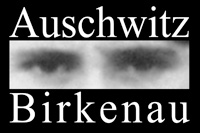




Kommando
Prisoner labor group, numbering from several prisoners to more than a thousand. It was supervised by SS men and prisoner functionaries subordinated to him. In the first months at Auschwitz, Kommandos were assigned above all to work at converting the old army barracks into a camp. Later, prisoners demolished buildings whose owners had been subject to expulsion. They were also employed in farming, raising animals, expanding the camp, and erecting the IG Farben chemical plant. New Kommandos were formed in connection with the extermination of the Jews in Auschwitz and the plunder of their belongings. Kommandos' job was also to serve the camp itself—administration, cooking, storage facilities, and the hospitals.
Prisoner’s fate depended to a large degree on the Kommando he was assigned to. So-called good Kommandos in offices, storage facilities, the kitchen, or the showers were the most desirable. In the worst ones, prisoners demolished buildings, leveled the ground, dug foundations, transported building materials etc. The Sonderkommando was a special labor detail. Working there was mentally destructive and the majority of its prisoner members were murdered.
